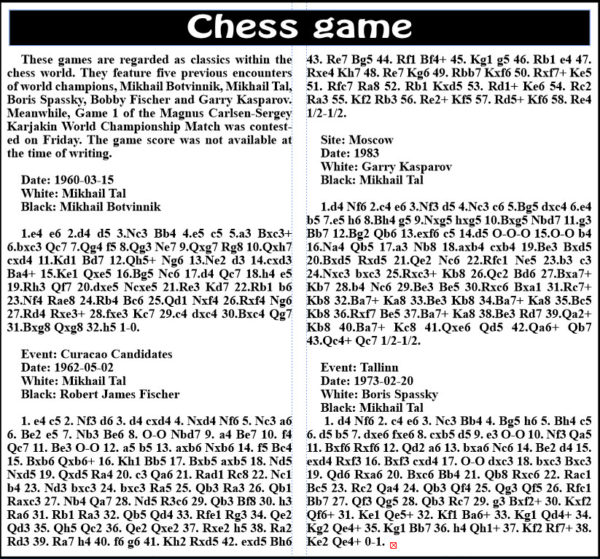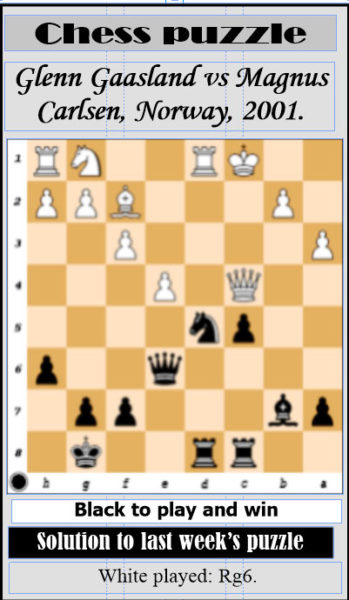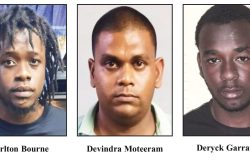 During the 1960s into the 70s, even today when someone says you are playing chess like Tal, that person is paying you an enormous compliment. Mikhail Tal was an attacking genius. He was called the ‘Wizard of Riga’ and ‘The Magician.’ He mesmerized his opponents with his wild attacking forays into enemy territory, which in many instances happened to be unsound combinations, but which, surprisingly, were hugely successful. Tal claimed many of his victories through questionable sacrifices. He beat Bobby Fischer four times, thereby becoming one of only a few persons to accomplish such a feat. Tal (1936-1992), became the Soviet champion at 21, and three years later he won the world championship title from his countryman Mikhail Botvinnik, in 1960. Tal was a master of improvisation, and he produced a number of exciting chess games.
During the 1960s into the 70s, even today when someone says you are playing chess like Tal, that person is paying you an enormous compliment. Mikhail Tal was an attacking genius. He was called the ‘Wizard of Riga’ and ‘The Magician.’ He mesmerized his opponents with his wild attacking forays into enemy territory, which in many instances happened to be unsound combinations, but which, surprisingly, were hugely successful. Tal claimed many of his victories through questionable sacrifices. He beat Bobby Fischer four times, thereby becoming one of only a few persons to accomplish such a feat. Tal (1936-1992), became the Soviet champion at 21, and three years later he won the world championship title from his countryman Mikhail Botvinnik, in 1960. Tal was a master of improvisation, and he produced a number of exciting chess games.
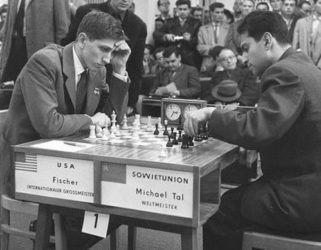
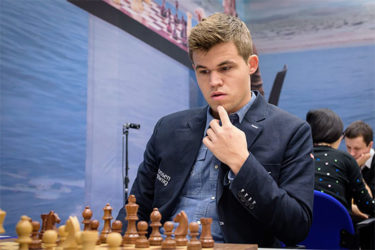
In the world chess championship title match between champion Magnus Carlsen of Norway, and his Russian challenger Sergey Karjakin, which began on Friday in New York, it is hardly likely we will witness the kind of excitement we experienced during the Tal-Botvinnik encounter of 1960, or the Fischer-Spassky clash of 1972. During the first match in 1960, it was all about the quality of the games. That was the excitement. In the Fischer match, the games were a prominent feature, but there was also the question of a superior East or West system. The Cold War was at its height in 1972, and the game of chess was used to measure its effect on a collective intellect. Was the East a superior system, or was it the West? The West won the war of systems with the help of Fischer. Immediately after, Fischer disappeared from view and chess lost its mystique. The interest in chess had all but disappeared along with Fischer. However, the mystique was rekindled in May 1997 when Garry Kasparov, widely considered to be the strongest human to ever play the game, faced Deep Blue, the most superior chess computer at that time. The question was: Who or what was the superior force? Kasparov lost the battle and with that loss shattered the hope of a curious public of matching the silicon monster. The computer age had arrived.
In the Carlsen-Karjakin match, I suppose safety will dominate the first quarter of the match. I suppose it would be marginally different to both the Tal-Botvinnik and the Fischer-Spassky first games of their respective world championship title matches. Tal defeated Botvinnik in Game 1, and Spassky did the same to Fischer. Although Carlsen and Karjakin are equally matched, the column believes Carlsen will retain his world championship title.
